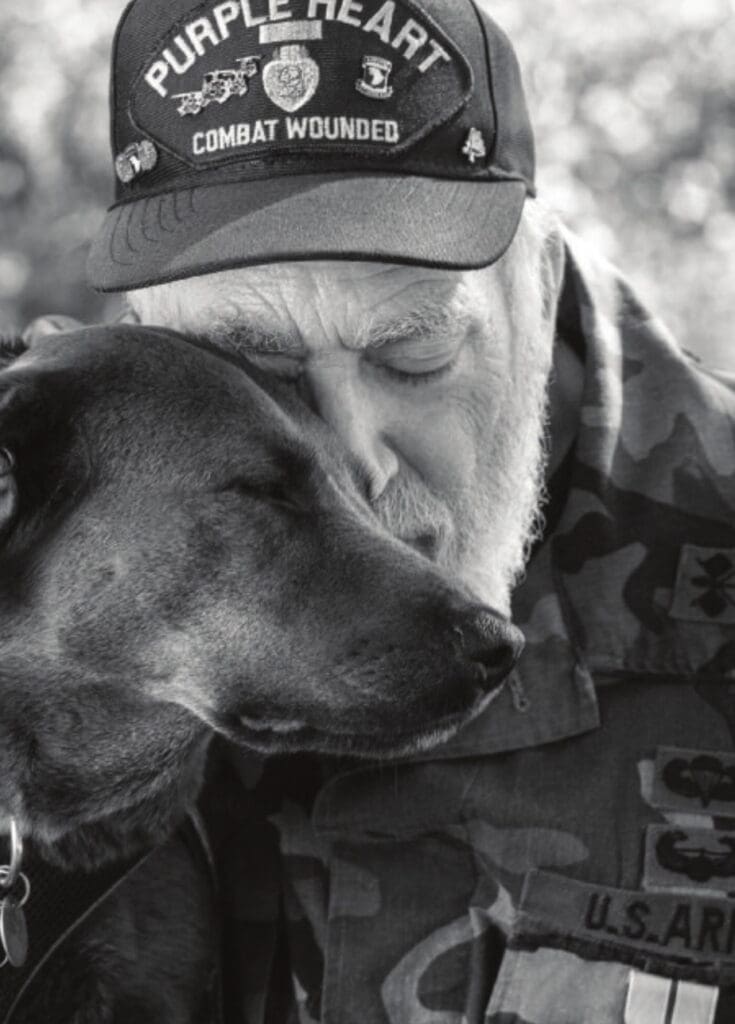Menu
CLEVER NONPROFITS CREATE CIRCLES OF GOODWILL.
It’s said that doing good should be its own reward, and three local nonprofit organizations are working to ensure that the rewards come full circle. One completes the circle via a reciprocal match-up of pets that need a home with military veterans who need the comfort and companionship of a loving animal. A second revolves around a self-fulfilling, pay-it-forward program in which at-risk youths who are trained to become successful entrepreneurs give back to the nonprofit that trains them. The third brings individual donors together to increase the impact of their giving while also enjoying a new circle of friendship. Driven by such perpetual motion, all three are picking up momentum.
BY JOAN TAPPER PHOTOGRAPHS BY GARY MOSS

PERHAPS IT WAS FATE that Mardu Lydick would found the Ventura County chapter of Pets for Vets (ventura-ca.petsforvets.com). For the last 20 years, the Moorpark resident and her husband, Ron, have rescued, sheltered, fostered, and placed a series of dogs.
“We both just love animals,” she says. But that’s only half the equation.
“I’ve got a ton of veterans in my family,” she adds. When Ron, who supported the Gary Sinise Foundation and similar veteran support groups over the years, read about a national organization that paired vets in need with shelter and rescue dogs, the couple found a way to combine their favorite causes to mutual advantage. They established the chapter in May 2014.
“We’re blessed to have quality volunteers, including a co-director and six professional dog trainers,” Mardu says. That’s important because once a veteran applies for a support animal and provides a military ID and history, a trainer gets to know him well enough to understand what kind of pet is needed.
“The vet may have PTSD, anxiety, depression, or physical disabilities, or no ailment at all. It’s a process,” she says, “and it has its own pace.” Over the next several months the trainer searches Ventura County shelters and rescue centers for just the right pet in terms of sex, size, breed, and temperament. Then the animals are trained to provide the exact help that’s needed. These are not service dogs, Mardu emphasizes. They range from a companion dog—a well-trained family animal—to an emotional support dog that can keep a stranger from approaching too closely, for example, or alert the vet if there’s someone approaching from behind. There is no charge for adoption, training, or a welcome package of products.
“This is a thank-you to the vets for their service,” says Mardu. As with any nonprofit, there’s always a need for fundraising, since the average cost of each match is about $3,000.
“Because we are a young chapter, the hardest part is community awareness,” Mardu says. “There are a lot of resources for vets, but we need to let them know that we are here.” Then there’s her goal of getting more qualified trainers on board, at least 12.
“Veterans do enough waiting,” she says. “We don’t want them waiting for a pet.”